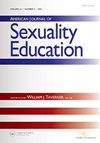Comprehensive Sexuality Education in Rural Ecologies: An Asset-Based Approach
IF 1.1
Q2 EDUCATION & EDUCATIONAL RESEARCH
引用次数: 0
Abstract
Abstract Comprehensive Sexuality Education (CSE) is a curriculum-based process of teaching and learning where learners are equipped with knowledge to cope with their developmental changes and risky sexual behaviors. Teaching and learning sexuality education has been seen as the responsibility for teachers only, however research indicate that it is a responsibility and collaboration of all stakeholders. Underpinned by an Asset-based approach as the theoretical framework this study addressed this question: “How can an Asset-based approach be utilized to enhance Comprehensive Sexuality Education in rural ecologies?” A case study research design and an interpretive research as the paradigm were adopted. Data were generated using focus group discussions, one-on-one interviews and reflective narratives with teachers, parents, learners, pastor, chief, nurse, social worker and a local business representative and analyzed using thematic analysis. The findings pointed out that, the collaboration of various stakeholders enhance the teaching of sexuality education; a strong ongoing partnership between the community and the school should be maintained and sexuality education workshops for young people in collaboration with communities facilitated by social workers. The study concludes that the teaching of Comprehensive Sexuality Education is not a responsibility for schools only, but encourages community-based collaborations and shared activities from the school communities.基于资产的农村生态综合性教育研究
摘要综合性教育(CSE)是一个以课程为基础的教学过程,学习者具备应对其发展变化和危险性行为的知识。性教育的教学一直被视为教师的责任,但研究表明,这是所有利益相关者的责任和合作。本研究以基于资产的方法为理论框架,解决了以下问题:“如何利用基于资产的方式来加强农村生态中的全面性教育?”采用了案例研究设计和解释性研究作为范式。数据是通过与教师、家长、学习者、牧师、主任、护士、社会工作者和当地商业代表的焦点小组讨论、一对一访谈和反思性叙述生成的,并使用主题分析进行分析。研究结果指出,各利益相关者的合作加强了性教育教学;社区和学校之间应保持强有力的持续伙伴关系,并在社会工作者的协助下,与社区合作,为年轻人举办性教育讲习班。该研究得出结论,综合性教育的教学不仅仅是学校的责任,而是鼓励学校社区的社区合作和共享活动。
本文章由计算机程序翻译,如有差异,请以英文原文为准。
求助全文
约1分钟内获得全文
求助全文
来源期刊

American Journal of Sexuality Education
EDUCATION & EDUCATIONAL RESEARCH-
CiteScore
2.40
自引率
8.30%
发文量
39
期刊介绍:
The American Journal of Sexuality Education speaks directly to the distinct, professional needs of sexuality educators and trainers. This peer-reviewed journal provides sexuality educators and trainers with current research about sexuality education programming, best practices, sample lesson plans, reports on curriculum development and assessment, literature reviews, scholarly commentary, educational program reports, media reviews (books, videos, internet resources, and curricula), and letters to the editor. The American Journal of Sexuality Education addresses a variety of sexuality topics and audiences, presenting up-to-date theory and practice, lessons, and evaluations.
 求助内容:
求助内容: 应助结果提醒方式:
应助结果提醒方式:


